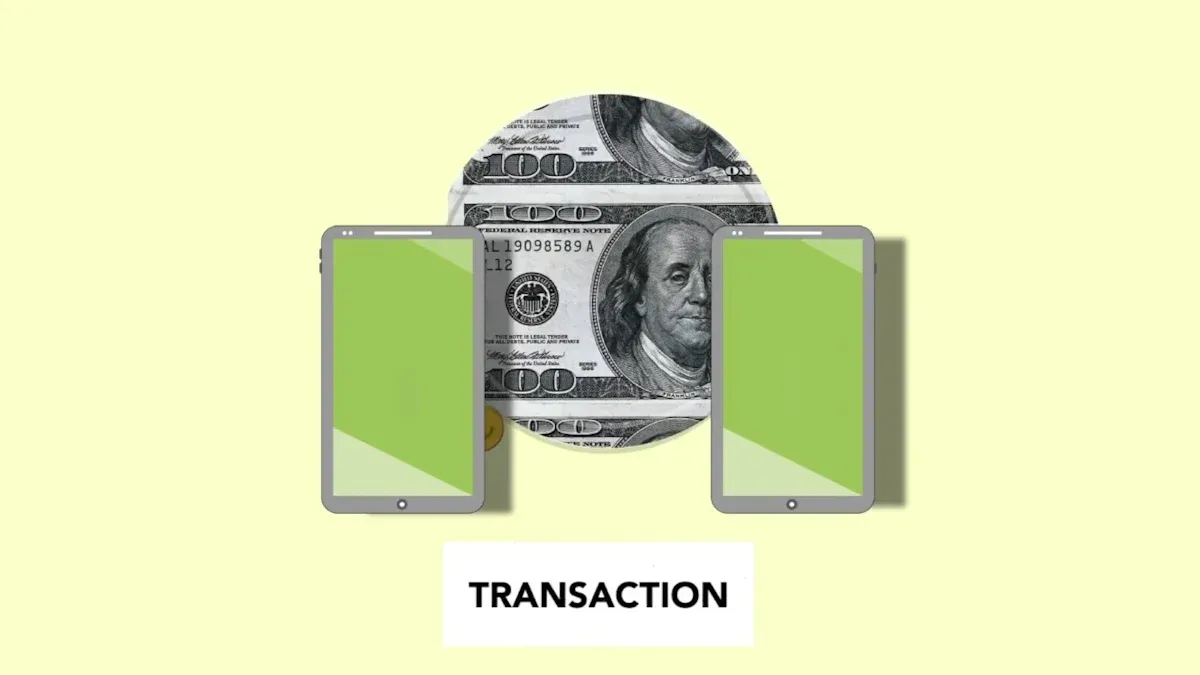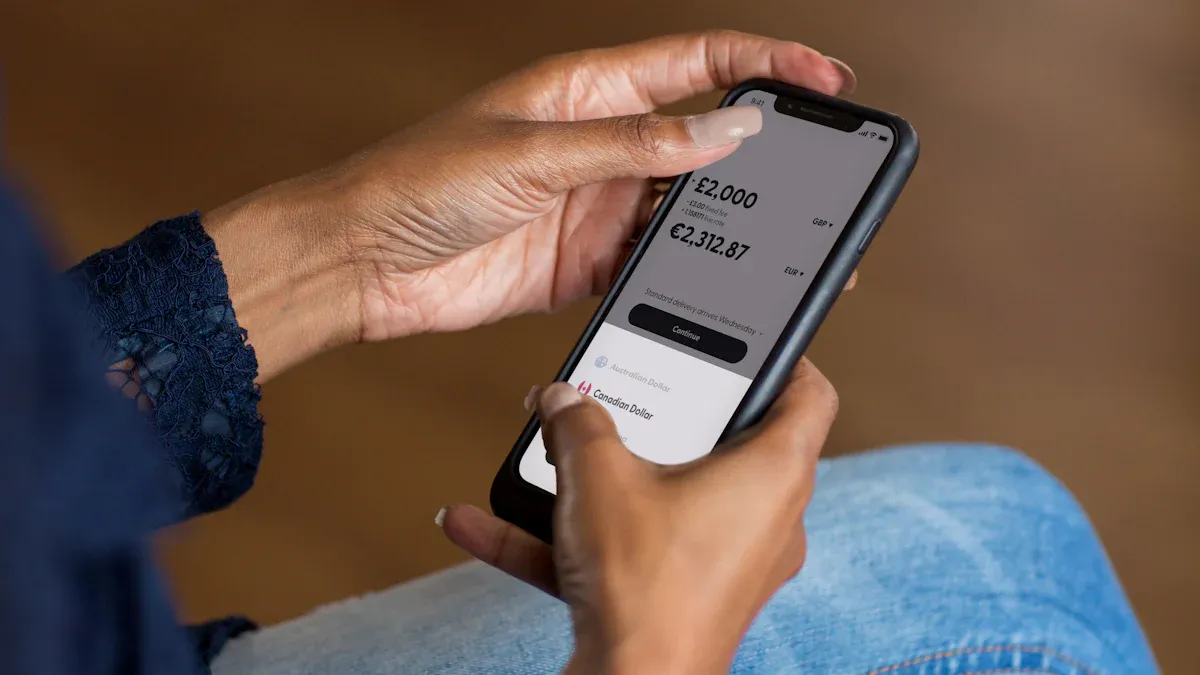- EasyCard
- Trade
- Help
- Announcement
- Academy
- SWIFT Code
- Iban Number
- Referral
- Customer Service
- Blog
- Creator
How to Choose PayPal's Family and Friends Transfer Option: Understanding Fees and Processing Times

Image Source: unsplash
When using PayPal for transfers, you will encounter two modes: “Friends and Family” and “Goods and Services.” Understanding their differences is the first step in answering how to choose PayPal Friends and Family transfer. This option is designed specifically for non-commercial transactions between individuals, such as splitting bills or sending gift money.
Important Note: This feature is not available in all regions globally. In particular, policies for mainland China accounts are different, with functionality restricted.
Continue reading to learn detailed fees, processing times, and alternatives.
Key Takeaways
- Mainland China PayPal accounts do not support the “Friends and Family” transfer feature; all transfers are treated as “Goods and Services” transactions and will incur handling fees.
- “Friends and Family” transfers are usually free domestically when using PayPal balance or linked bank account, but fees apply when using credit cards or for cross-border transfers.
- PayPal balance and credit card transfers are typically instant, while bank account transfers may take 3 to 7 business days.
- “Friends and Family” transfers do not offer buyer protection and are only suitable for non-commercial transactions with friends and family you fully trust.
- Never use “Friends and Family” transfers to purchase goods or services from strangers, as this exposes you to fraud risk with no way to recover funds.
Important Prerequisite: Functional Restrictions for Mainland China Accounts
Before diving into fees and timing, you need to understand a key fact. PayPal policies vary by country or region. For users registered with mainland China bank accounts or cards, the situation is particularly unique.
Current Policy Explanation
According to PayPal’s policy, personal accounts registered with mainland China information function differently from accounts in other countries/regions. The core difference is:
Mainland China PayPal accounts do not support the “Friends and Family” transfer feature.
Simply put, any personal transfer initiated from a mainland China account will be automatically classified by the system as a “Goods and Services” payment. You cannot manually select the “Friends and Family” option.
Impact on Mainland China Users
This policy restriction has a direct impact on you, primarily in two aspects:
- No Fee Exemption: Since all transactions are “Goods and Services” in nature, fees are unavoidable. These fees are typically borne by the recipient, meaning your friend or family member will receive less than the original amount you sent. This is entirely different from the original intent of “Friends and Family” transfers being free in many regions.
- Need for Alternatives: If your purpose for personal transfers (such as remitting money to family or splitting expenses with friends) is to avoid fees, then PayPal mainland China accounts cannot meet your needs. In this case, you should consider other international money transfer tools.
For personal fund transfers, you can consider the following common alternative services:
- Wise
- Western Union
- Moneygram
Therefore, if you are a mainland China user, understanding that all payments are treated as “Goods and Services” is a prerequisite for using PayPal.
Global Fee Breakdown for “Friends and Family” Transfers

Image Source: pexels
When using the “Friends and Family” transfer feature, fees vary based on your location, funding source, and the recipient’s country. Please note that the following discussion applies to countries and regions that support this feature, excluding mainland China.
Domestic Transfer Fees
For transfers within the same country or region, it is entirely possible to achieve fee-free operations. The key lies in what funding source you choose for payment.
Payment Tip: To maximize savings, you should prioritize using PayPal balance or linked bank account for domestic transfers.
The table below clearly shows the fee differences for different payment methods (using U.S. domestic transfers as an example):
| Payment Method | Fee |
|---|---|
| PayPal Balance or Bank Account | Free |
| Credit or Debit Card | Fees Apply |
When using a credit or debit card for payment, PayPal charges a processing fee. This fee is typically a percentage of the transfer amount plus a small fixed fee (e.g., 2.9% + $0.30 USD). So, even for a small transfer to a friend, using a card will incur additional costs.
Cross-Border Transfer Fees
When sending money to friends or family in other countries, “Friends and Family” transfers almost always incur fees. You need to understand the two main components of the fees:
- Cross-Border Transaction Fee: This is a fixed sending fee. For example, sending from the U.S. to the UK may require a fixed fee of $2.99 or $4.99 USD, depending on the recipient’s country.
- Currency Conversion Fee: If the transfer involves two different currencies, PayPal adds a markup to the base exchange rate. This fee is typically 3-4% above the exchange rate, directly affecting the final amount received by the recipient.
Example: Suppose you send $100 from a U.S. account to a friend in the UK.
- First, you need to pay a fixed cross-border transaction fee, such as $4.99 USD.
- Then, when converting the remaining dollars to pounds, PayPal uses an exchange rate with about a 4% markup. This means your friend receives fewer pounds than they would at the market standard rate.
In some transfer routes, the fee structure may differ. For example, when sending from the U.S. to Mexico, fees may not be fixed but charged as a percentage of the transfer amount. Therefore, always carefully check the fee details displayed by PayPal before confirming the transfer.
Transfer Processing Time Analysis
The funding source you choose not only affects fees but also directly determines the speed of the transfer. Understanding the processing times for different methods can help you better plan your funds and avoid unnecessary issues due to delays.
Instant Arrival Scenarios
In most cases, you can achieve instant transfers. When your friend or family member receives the funds almost immediately after you click “Send,” it is usually because you used one of the following two funding sources:
- PayPal Balance
- Credit or Debit Card
These two methods provide funds that are immediately available to PayPal, so the platform can complete the transaction instantly. The recipient’s PayPal account will immediately reflect the received amount.
Transfer Tip 💡: If you need to urgently send money to friends or family, using your PayPal balance or linked card is the best choice to ensure fast arrival.
Potential Delay Scenarios
Not all transfers are instant. In some cases, your remittance may experience a waiting period of several days.
The most common reason for delay is using a linked bank account for direct payment. When you do this, PayPal processes it through a method called “eCheck.” This process is not instant because it requires:
- Extracting funds through the bank’s clearing network (ACH network).
- Waiting for the bank to confirm sufficient balance in your account.
According to Evidence 1, this clearing process typically takes 3 to 7 business days. Since banks do not process transactions on weekends or holidays, a transfer initiated on Friday may not complete until the middle of the following week.
Additionally, even if you use an instant method, your transfer may be temporarily held by PayPal for security review. According to Evidence 2, this usually occurs in the following situations:
- Unusual Account Activity: Your account is newly registered or has been inactive for a long time.
- Large Payment Amount: The transfer amount far exceeds your usual transaction habits.
- Incomplete Account Information: Your PayPal account has not completed all identity verification steps.
- Incorrect Payment Type Selection: You accidentally selected “Goods and Services” instead of “Friends and Family,” triggering PayPal’s buyer protection process and freezing the funds temporarily.
If this happens, PayPal will notify you and the recipient and may request additional information to release the hold.
How to Choose PayPal Friends and Family Transfer vs Goods and Services
When conducting a transaction, choosing the correct payment type is crucial. This not only affects fees but also directly impacts your fund security. Understanding the fundamental differences between “Friends and Family” and “Goods and Services” is the core to answering how to choose PayPal Friends and Family transfer.
Core Difference Comparison
These two payment methods differ completely in design intent, fee bearer, and security level. The table below clearly shows their core differences.
| Feature | Friends and Family | Goods and Services |
|---|---|---|
| Applicable Scenarios | Non-commercial transfers between individuals, such as sending gift money, splitting bills, or repaying debts. | Purchasing any goods or paying for services, such as online shopping or paying freelancers. |
| Fee Bearer | Usually borne by the sender (especially when using cards or cross-border payments). | Fees borne by the recipient (seller). |
| Security Protection | No buyer or seller protection provided. | Provides PayPal Buyer Protection and Seller Protection. |
For “Goods and Services” transactions, remember a key point: As the recipient of funds, you are responsible for paying all PayPal fees. Buyers do not pay extra fees when making purchases, which is one reason PayPal is attractive to consumers.
To help you understand more intuitively, refer to the following usage guide:
- When to Use “Friends and Family”
- Sending money to friends or family you fully trust.
- Splitting the cost of a dinner or sending birthday gift money.
- You are certain the transaction has no risk and does not involve any exchange of goods or services.
- When to Use “Goods and Services”
- Purchasing goods on e-commerce platforms or from unfamiliar individual sellers.
- Paying for online services such as design or writing.
- Any commercial transaction where you want refund protection in case of issues.
Security Protection and Risks
Fee differences are important, but security protection is the most critical factor when deciding how to choose PayPal Friends and Family transfer. The wrong choice may lead to irretrievable financial loss.
“Goods and Services” payments come with a strong safety net, namely PayPal Buyer Protection. This service requires no additional fee from you and protects your rights in the following situations:
- Item Not Received: You paid, but the seller did not ship.
- Significantly Not as Described: The item received differs greatly from the seller’s description, such as receiving counterfeit goods, damaged items, or wrong models.
If a “Friends and Family” transfer goes wrong, such as using it to buy goods but the seller disappears, you almost cannot recover funds through PayPal’s dispute resolution channels. The only exception is if your account was hacked and someone made the transfer without your authorization, allowing you to file a claim.
Scammers often exploit this by:
Inducing you to use “Friends and Family” to pay for goods, claiming “this saves you fees”. If you agree, once the money is sent, they can take it and disappear, leaving you with no recourse.
Additionally, other scam forms abusing “Friends and Family” include investment fraud, fake rental listings, and impersonating official institutions. Therefore, never use the “Friends and Family” option for any monetary transaction with strangers.
Also, if a seller insists on using “Friends and Family” for a commercial transaction, this is a red flag. Such behavior clearly violates PayPal’s user agreement. You have the right to refuse and insist on “Goods and Services” to ensure your transaction is protected.
“Friends and Family” Transfer Operation Guide

Image Source: unsplash
After understanding how to choose PayPal Friends and Family transfer, mastering the correct operation method is equally important. The process is very straightforward, but you need to pay attention to a few key steps to ensure your transfer is correctly categorized.
Basic Steps to Initiate a Transfer
You can easily initiate a “Friends and Family” transfer via PayPal’s website or mobile app. The following is the operation process on the mobile app:
- Click the “Send” button on the main interface.
- Enter the recipient’s information; you can use their name, PayPal username, email, or phone number.
- Enter the amount you want to send and select the correct currency. You can also add a note here, such as “Happy Birthday!”.
- After clicking “Next,” you will enter the most critical selection page.
Correctly selecting the payment type is the core to ensuring both you and the recipient enjoy the convenience of “Friends and Family” transfers.
Sending Money to Users Without a PayPal Account
You can even send money to friends who do not yet have a PayPal account. The process is essentially the same as above; you just need to enter their email address or phone number.
When your friend receives the notification, the following will happen:
- Create a New Account: If your friend does not have a PayPal account, they will receive an email guiding them to create a free account to receive the funds.
- Add Email Address: If your friend already has a PayPal account but you sent to an email not yet linked, they simply need to add and verify this new email in their PayPal account to receive the funds.
Important Note: If the recipient does not create an account or claim the funds within the specified time, the payment will remain in “pending” or “unclaimed” status. Eventually, the funds will be automatically returned to your account.
When deciding how to choose PayPal Friends and Family transfer, you need to weigh three core factors:
- Protection Level: Whether the transaction requires security protection.
- Fee Structure: Who bears the fees and how much.
- Tax Implications: Whether the payment may be considered taxable income.
Once again, any commercial transaction must select “Goods and Services” to receive PayPal’s official protection. This shields you from fraud risks.
Ultimately, for mainland China users, remember all payments are treated as “Goods and Services.” For users in other regions, make the safest and most cost-effective choice based on the transaction nature and recipient.
FAQ
As a mainland China user, why can’t I find the “Friends and Family” transfer option?
According to PayPal policy, mainland China accounts do not support the “Friends and Family” transfer feature. Any personal payment you initiate will be automatically classified by the system as a “Goods and Services” transaction, so you cannot see this option.
Is “Friends and Family” transfer completely free?
Not necessarily. It is usually free only for domestic transfers using PayPal balance or linked bank account. When using credit/debit cards or for cross-border transfers, PayPal charges fees, such as 2.9% + a fixed fee (e.g., $0.30 USD).
Can I use “Friends and Family” transfer to buy things from strangers?
Absolutely not!
“Friends and Family” transfers offer no buyer protection. If you use it to pay for goods and something goes wrong (e.g., no delivery), you cannot recover funds through PayPal. This carries extremely high fraud risk.
Through this detailed breakdown of PayPal’s “Friends and Family” transfers, we’ve clarified the balance between its domestic free convenience and cross-border 4% rate markups, effectively tackling user pitfalls like hidden fees, fraud without protection, and 3-7 day bank delays—perfect for trusted personal splits. Yet, for needs spanning global multi-currency flows, dodging PayPal’s 2.9%+ fixed charges, or instant large transfers, a more universal, low-cost digital payment platform delivers seamless elevation, bypassing single-tool geographic limits and security gaps. BiyaPay, the innovative cross-border finance specialist, enables instant swaps between over 30 fiat currencies and 200+ cryptocurrencies, with built-in real-time exchange rate queries and tools for markup-free, precise transparency.
Just register simply to access remittance fees as low as 0.5%, reaching most countries worldwide with same-day arrivals. This surpasses PayPal’s card processing costs and pending states, fortified by bank-grade encryption, multi-factor authentication, and AML compliance for secure family or friend transfers. Whether handling cross-border gifts, urgent splits, or business settlements, BiyaPay’s borderless access and unlimited limits mitigate rate swings, streamline verifications, and optimize fund flows.
Launch your free transfer era now! Visit the real-time exchange rate query to check latest rates and create your free account. Choose BiyaPay for zero-fee, high-speed, reliable global friend and family transfers.
*This article is provided for general information purposes and does not constitute legal, tax or other professional advice from BiyaPay or its subsidiaries and its affiliates, and it is not intended as a substitute for obtaining advice from a financial advisor or any other professional.
We make no representations, warranties or warranties, express or implied, as to the accuracy, completeness or timeliness of the contents of this publication.




Contact Us
Company and Team
BiyaPay Products
Customer Services
is a broker-dealer registered with the U.S. Securities and Exchange Commission (SEC) (No.: 802-127417), member of the Financial Industry Regulatory Authority (FINRA) (CRD: 325027), member of the Securities Investor Protection Corporation (SIPC), and regulated by FINRA and SEC.
registered with the US Financial Crimes Enforcement Network (FinCEN), as a Money Services Business (MSB), registration number: 31000218637349, and regulated by FinCEN.
registered as Financial Service Provider (FSP number: FSP1007221) in New Zealand, and is a member of the Financial Dispute Resolution Scheme, a New Zealand independent dispute resolution service provider.



















